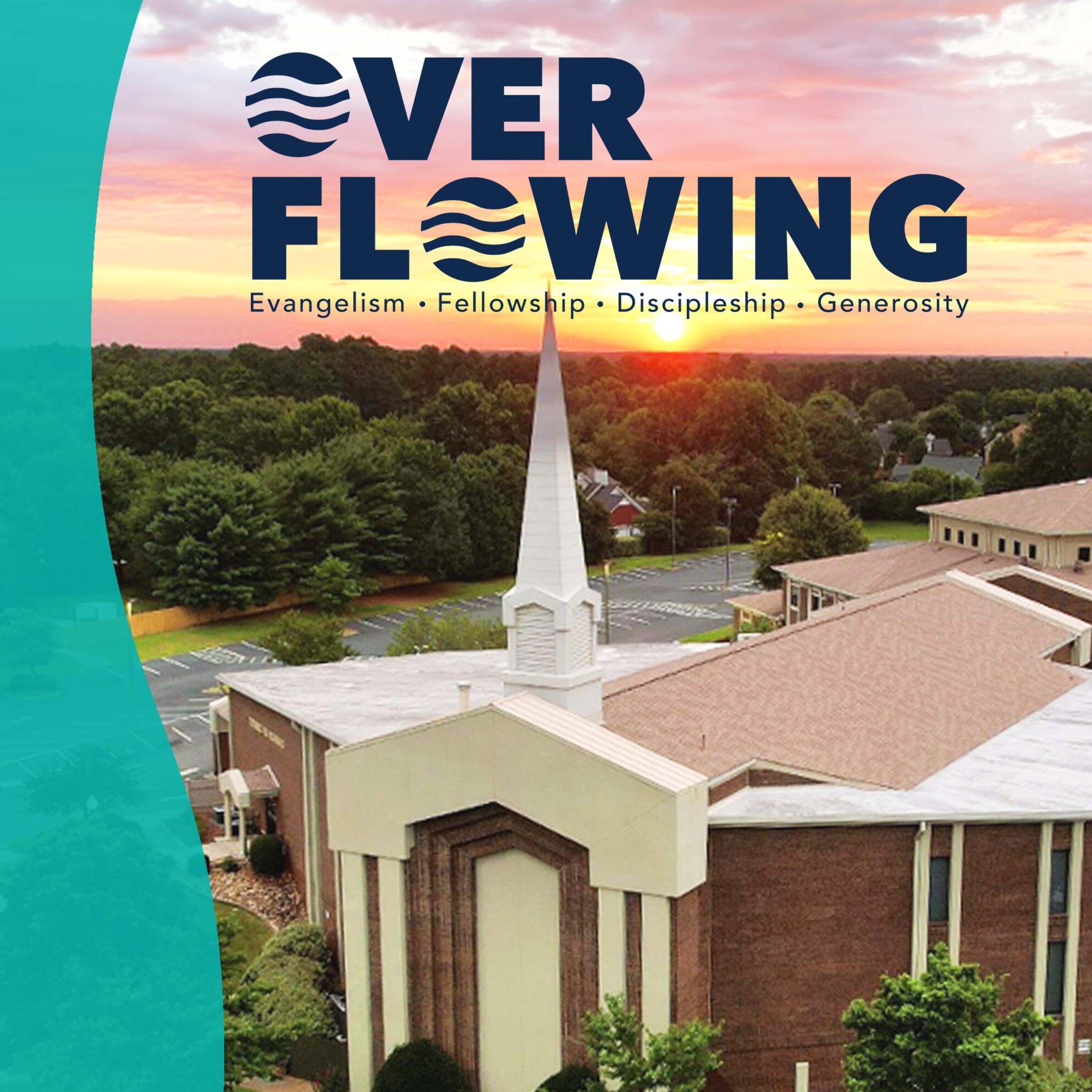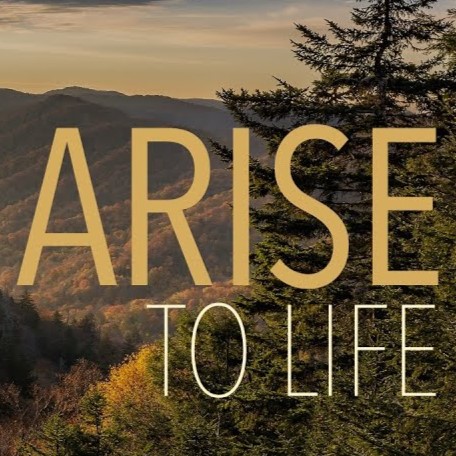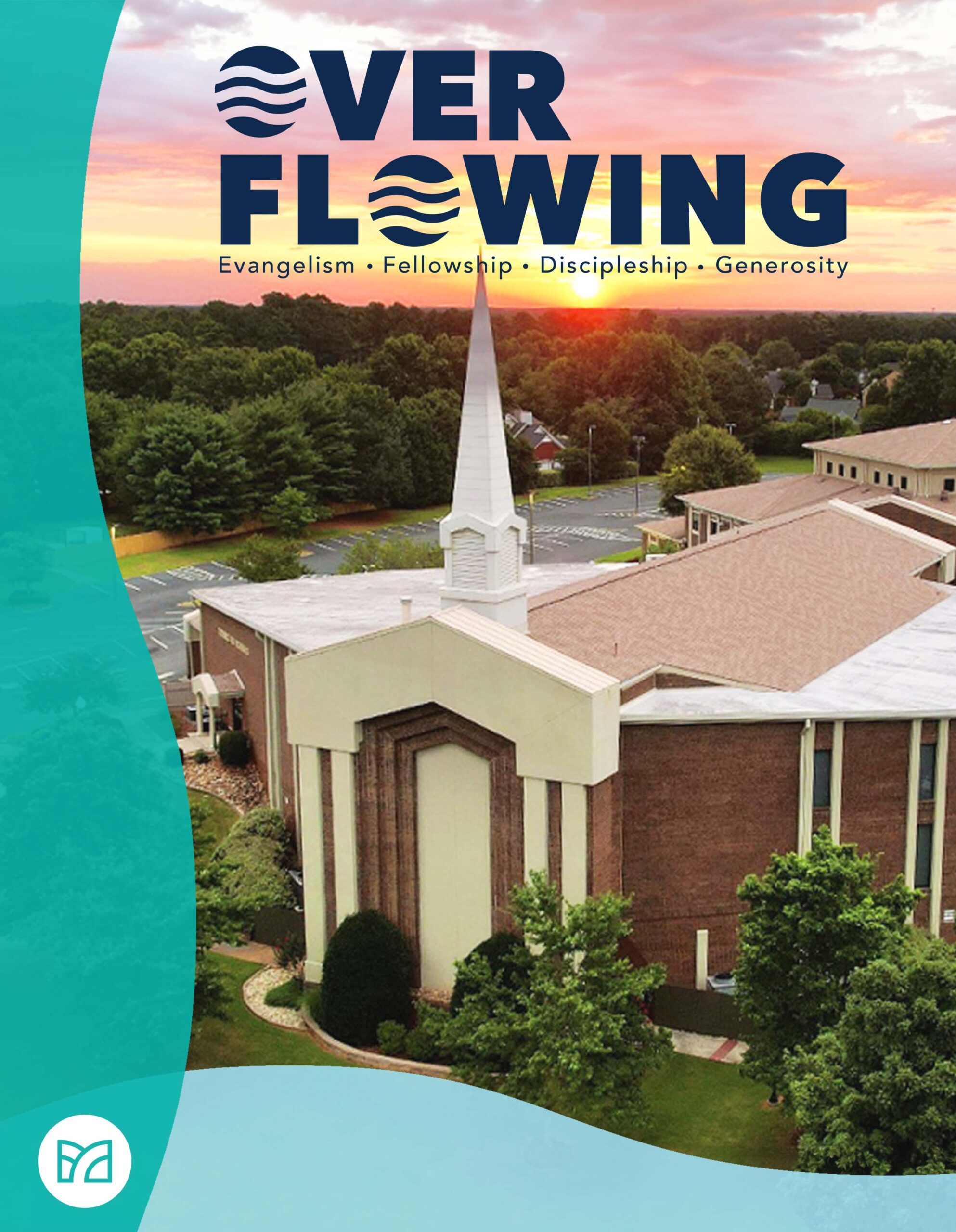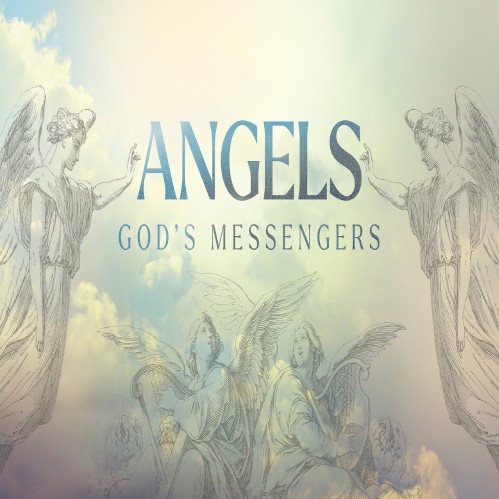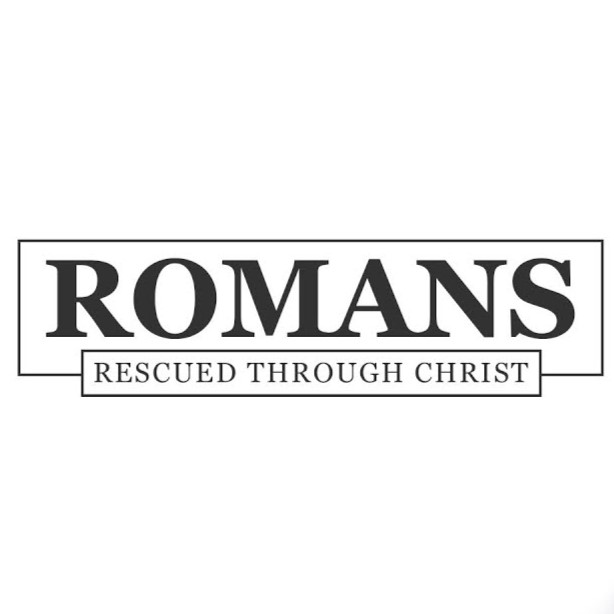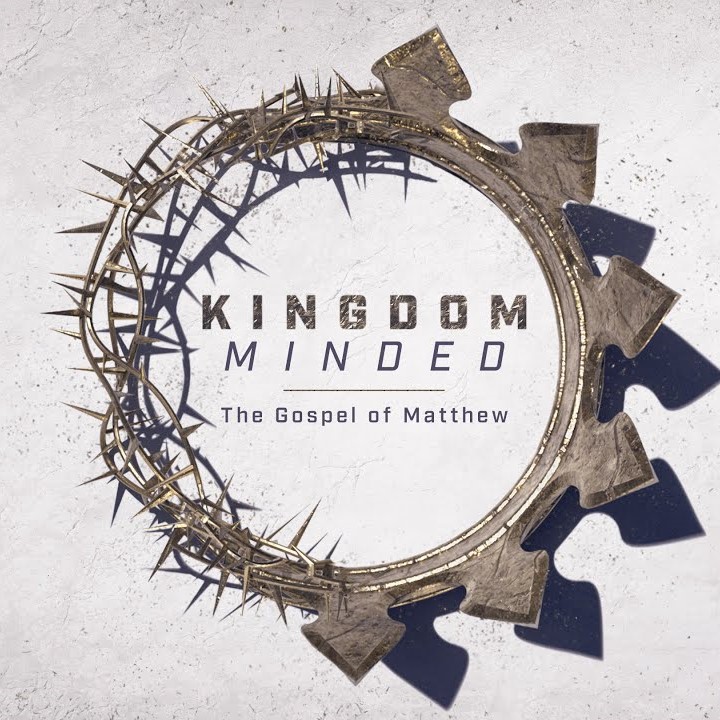[00:00:01] Speaker A: Hey, thanks so much for listening to this message. My name is Jason and I'm one of the ministers here at the Madison Church of Christ. It's our hope and prayer that the teaching from God's word you hear today will bless your life and draw you closer to him. If you're ever in the Madison, Alabama area, we'd love for you to worship with us on Sundays at 830 or 10:30 a.m. If you have any other questions about the Bible or want to know more about the Madison church, find
[email protected] dot. Be sure to also check out our Bible study podcast, Madison Church of Christ Bible studies. Thanks again for stopping by.
[00:00:38] Speaker B: I am so excited for today.
Those of us who've been on the executive campaign commission have waited for this day for months.
It is an exciting time here at Madison. Every family should have got a pamphlet or brochure. Once again, I want to thank Jason for all the time he put into that, and we're going to talk about that a little bit later.
If you didn't get a chance to walk through and look at the history hall, I encourage you to do so after.
I want to thank Bart for reading those scriptures and his comments because we're going to go back to look at acts chapter two and look at the church that we see in acts chapter two. And like Barth, when I read this whole idea that they praised God and found favor with all men, that fascinated me. First of all, we look at that word all, and it's not just that they found favor with men, but rather they found favor with all men. It changes the whole dynamic, because now we see they found favor not with the Jews, not just with the Pharisees, but with the Romans and the Gentiles who were living around them. And the other question I had is, can the church today, can the church of the 21st century find favor with those who are living right outside those doors? Can the church of the 21st century be like that church that we read about in the first century?
As we answer that, I want us to see what's outside those doors. So when we look at this map, the blue diamond represents our building here on Hughes Road. The black lines represent the boundaries of the city of Madison. But I want you to focus on that orange area. That orange area was created by asking, how far can I drive in 15 minutes?
If you live inside that orange area, then you should be able to get to our building in 15 minutes or less. So who lives in that orange area? Inside that orange area? According to the 2020 census, there's 147,000 people.
And of that 147,000, nearly 12,000 are hispanic. Now, the census Bureau doesn't count homes. They call them households, where one or more people dwell. And within 15 minutes of this building, there are 64,000 households. The Lord has given us a field ripe for harvest not hundreds of miles away, not hours away, but 15 minutes outside those doors.
Also, the population of Madison is just a little less than 62,000. And we have a 4.5% poverty rate. That means within 15 minutes of this building, there's 2754 people living under the poverty level. We look at the Madison city school system, and we think, we're so affluent. The Madison City school system has 12,200 students.
But 3402 of those children receive federal aid. That is, one in four receive assistance. And as we look at those numbers, I don't want you to see numbers, because those are people. Those are our neighbors. Those are our coworkers. Those are your classmates.
Those are souls. Souls that are 15 minutes away from this building.
That is what we focus on. That is what we want to look at. So how. How did that church in acts chapter two find favor with all men?
Well, what Barth read, there are four ways that we see that within that first century church, and we're going to look at those this morning. The first thing is that church in acts chapter two, evangelized. Notice that it said they added to their number. Paul tells Timothy in first Timothy chapter two, that God desires all men to be saved. Well, how are men saved? Men are saved by hearing the gospel message of Jesus Christ and responding to that.
What's a missionary? A missionary? That word is a greek word which means one who was sent 40 times. In the book of John, Jesus said he was sent by the father.
Every one of us today is a missionary because our God is a God who sins, and he should send us. And he sends us 15 minutes from the building and then out into the world.
So what does that look like twice in the book of Mark, we see jesus go to the region known as the capitalists. Decapolis was a region that was east of the sea of Galilee, east of the Jordan river. And there were ten main cities, hence the name Decapolis. And so in Mark chapter five, we see Jesus cross the sea of Galilee. And when he exits the boat, he is immediately met by a man possessed by a demon. But not just one demon, a legion of demons. And we all know the story. We know that Jesus cast those demons into a herd of swine who fled over a cliff and into the sea of Galilee and drowned.
And afterwards, the herdsmen of those swine told the townspeople, who came, and they saw that man possessed by demons in his right mind. And they were afraid.
They were so afraid, they begged Jesus to get back in the boat and to leave.
That man who had been possessed begged Jesus to take him with him, to go with him, to follow him. And instead, in verse 19, Jesus tells that man, go home and tell your friends how much the Lord has done for you and how God has had mercy on you. Less than one day. Less than one day is Jesus time into capitalists. In chapter five, then we move down a few more chapters to the end of chapter seven, and we see Jesus going back across the sea of Galilee once again. He goes to the region of Decapolis. He gets out of the boat, and this time he is met by a multitude who brought him a man who was deaf to be healed.
Jesus stayed with those people for three days.
And at the end of those three days, he fed 4000 and then got on a boat and went back across the sea of Galilee. So in chapter five, we have the people fearing Jesus, asking him to leave. And in chapter eight, we have them staying with him and following him for three days.
So what happened? Why the change between chapter five and verse eight?
Mark, chapter 20 says, and that man, the demon possessed man, went telling all. And they marveled. The only logical explanation was the man did what Jesus asked him to do and went throughout that region proclaiming what Jesus and what God had done for him.
Imagine what would happen if all of us went out there and told them what God has done for us.
How about if we went out there and we share, simply shared with them the gospel message that the only problem in life is sin, and Jesus is the only solution for that problem. Here you have one man, no formal training, no knowledge of the scripture, one man telling others what Jesus had done for him. And he made an impact, and he made a difference in that community.
If we look at verse 42 and verse 44, we see those first century christians were devoted. They were devoted to each other.
They were devoted to fellowship. Now, when we hear the word devotion, all of us know what that means when we talk about the marriage relationship. But what does it mean in our dealings with each other?
Are you devoted to that person sitting in front of you?
What about the person behind you? North side church. Are you devoted to the south side church?
Romans twelve says that they were to be devoted to one another and to have brotherly love.
What does that look like? How do we see that? Let me share with you an example of brotherly love. In 2003, I was on a business trip to Eglin air force base in Florida, and I was at the hotel getting ready to leave to go get dinner, and I got a call from Amy, and there had been a car accident. And our daughter Alyssa was in intensive care at Huntsville hospital. And at the time, they were deciding whether to keep her in Huntsville or fly her to Vanderbilt.
I'm 360 miles away.
So we hung up, and the first person I called was Brian wisdom.
And I told Brian what had happened, and then I told him, I need you to go to the hospital.
I cannot drive by myself 360 miles unless I know someone is there watching over my family.
I finally got to the hospital, and as I went into the waiting room, there sat Brian.
That is brotherly love. That is devotion. But that takes time. That takes energy.
It takes time for us to be together and to grow together. And devotion isn't easy. Brian and I have had arguments. We've had disagreements. But what we have had is all things in common because of our belief.
There are people who are sitting in this assembly today who are drowning, who are hurting, and who are struggling.
We have to know about those people. We don't gather together simply to make a check of all the elements of worship and then leave and go eat at our favorite mexican restaurant.
When we come together, things, attitudes such as love, affection, encouragement, joy, those should dominate our gathering. Those should dominate our assembly. And if there's a brother or sister who is struggling here today and who comes to this service, they should not leave that way. We have to have the fellowship that we see in acts chapter two.
And then notice not only were they devoted one to another, but they were also devoted in the apostles teaching. In other words, they were focused on discipleship. Discipleship simply means that process in which we grow to have a more christlike attitude.
When we look at Matthew 20 819, we see Jesus tell us. We see Jesus command us. We see Jesus give us a mission to go make disciples of all nations. When we look at that greek word for nations, it is simply those of all races.
That word in the Old Testament meant to be those who are not part of Israel. Paul uses the same greek word to talk about gentiles.
It is our mission.
It is a commandment for us to go and make disciples. It was Jesus last commandment, and it should be the first thing on our minds. Everything we do should be to make disciples. That should be our first priority in one corinthians Paul writes, I planted, apollos watered, and God gave the increase. So what that tells me is discipleship is partly on me.
I grow in discipleship through knowledge, through studying the scripture, and I grow to discipleship through maturity, which is taking what I learned from scripture and applying it to myself. But when I hear the term apollos watered, then I also see it's a commandment for me to help others grow in discipleship. It is time for us to teach, to mentor, to instruct.
Mature Christians are developed through discipleship.
Every ministry at Madison, every lesson in Bible class, every sermon should be focused on this idea of making disciples.
And then let's look at acts 45. Notice it says, they began selling their property and possessions and sharing them with all who is in need. The first century church was a generous church.
When I was a teenager and when I was in my twenties and a preacher started talking about generosity, you knew he was talking about your money. You knew he was talking about your financial wealth. But somewhere along the way, we substituted time and energy for our money. We said, well, I don't have much to give, therefore I'm going to be more involved. I'm going to give him my time. I'm going to give him my energy and not give of my money.
Time and energy is used other places. Evangelism requires time and energy.
Fellowship requires time and energy.
Discipleship requires time and energy. When the first church, first century church, when it says they were generous, it's talking about their money. It's talking about their wealth, their material things. And we've got to think about that as we talk about our generosity or our giving. In church.
There are 37 miracles recorded in the gospels, but there is only one miracle that appears in all four. And that's the miracle that we refer to as the feeding of the 5000.
Now most scholars say that the 5000 simply represents the men that you had, women and children. And they say there may have been as many as 25,000 within that crowd.
But whether it was 5000 or 25,000, there's a wonderful lesson recorded for us in those gospels. And we all know the story, how Jesus wanted to feed this multitude. And so he sent the apostles out and the apostles brought him back, a small boy who had five loaves and two fish. Now, let me ask you this. Do you really think as the apostles went from family to family, from person to person, that it was just that little boy who had any food?
My family, the Baker family, we can't go to Decatur without stopping at Bucky's.
So you really think that mothers are going to go out and not pack a snack? That grandmothers are going to go out and not pack snacks for the grandchildren? I just know that as those apostles went throughout that crowd, that there was other people with food.
And only this little boy decided to share his.
And I think about what the apostles might have heard.
Might they have heard?
I'm going to feed my family first, and then I'll let you have the scraps of what's left over.
You know, there is such a crowd and I have so little, I can't even make a dent in the need.
But this little boy, this little boy gave it all.
Would you have given it all for me? I'm a bread guy, not so much a fish guy. So I would have gladly given him the fish, but I'd want to keep the bread.
But this little boy gave all he had. Now, as we think about that, do we really think the little boy had faith that Jesus was going to do some miracle? We're not told a lot about him, but I suspect that wasn't what is on his mind.
I suspect he just saw people hungry and wanting to share, and he gave, knowing that something was going to happen, but maybe not exactly what that something was.
You see, God takes our gift, God takes our generosity. And it isn't about the amount.
God takes our gift. He combines it, he multiplies it, and great things can be done.
Paul writes in two corinthians, chapter nine, that we should sow bountifully, to reap bountifully.
I've been blessed in my life to know many who sowed bountifully. I'm reminded of Charles Crane. So for 25 years, Charles came to me and said, do you have a bible camper who can't afford to go? I'll pay his way. And for 25 years, he always paid for one.
Most of the time he paid for two. And one year he paid for six, because he wanted every child to go to camp.
One year, I had a couple of cabins that water damaged, and we had no mattresses. And I was telling Charles about it, and we got a check for the mattresses. We wanted to paint the cabins. Charles paid for the paint. We wanted to stain the gazebos. Charles paid for the stain. And the only stipulation was, I didn't tell anybody it was him.
He gave that and didn't want any credit or any knowledge that was him who was giving that. You know, further on, when we read in two corinthians, what we read is that everyone should give according to how he is set aside in his heart, and that God loves a cheerful giver. The first century church understood that generosity was about the material things that God had blessed us with and those needed to go back to God.
And so we have this campaign.
We have this campaign where we've talked about evangelism, fellowship, discipleship, and generosity. The four things that we see in that first century church that had them find favor with all men and to add to their number on May 19 is going to be what we call commitment. Sunday, we're going to ask everyone, 100% participation, to turn in a commitment card. There's an example of that in the booklet. And on that card, we would like for you to make a commitment of what you can give above and beyond your normal contribution over a period of three years to fund our building expansion. There's a giving table in there that kind of shows you how that'll work, but that's what we're asking for. Parents, this is a great time to teach your children about these four things, and especially about generosity. In our kids corner, Jordan's developed lessons for the kids who cover these things. Brandon and I are talking to the teenagers about these things, but it's a great time for you as a family to talk about generosity. One of the things that we've done, my dad was on the board of directors for the Tennessee Children's home. So we always had these cans in our house where we would put our extra change, put our coins. So we've created those for the campaign. So I encourage you to get those, because just like our giving is going to be above and beyond our contribution, we want our kids to learn generosity by giving above and beyond what they might give during kids give.
I know when we look at that building and we see that $8 million, I know it's scary.
I know we look at that and we think about, that is such a large project, and what do I have that I can give to that? We look at that and change is difficult.
Change is scary.
And we wonder what's going to happen to Madison. Is this going to change? Madison? Is Madison going to change because of this?
My first job out of college was with the US Navy.
And so I actually moved to the Gulf coast of Mississippi.
And that far from where I lived was a town called Pascagoula. And in Pascagoula, they had a shipyard.
And we went and I went on a tour of that shipyard. And as I watched them building those huge ships, I was amazed at how small the rudder was.
And it just kind of blew my mind to think that such a small device could steer such a huge, gigantic ship.
The church has a rudder and that rudder is not the building.
That rudder is not the facilities.
The direction of the church is steered by its elders. The elders is what keeps that church on course. The elders is what points the church to acts chapter two. It's the elders that steer the church, not a building or not some facilities.
This campaign is much more than a building.
This campaign is an opportunity for us to get closer to that acts chapter two church. Brandon mentioned that not only was acts chapter two the first church, but rather it was the model church. And being the model church, we can never outgrow the church that we see in acts chapter two.
Madison Madison family it's time.
It's time for us to go out into our community and make a difference.
It's time for us to go out into our community and be a light.
3400 children did not have the thanksgiving dinner or the Christmas dinner that we enjoy.
Mass and family it is time for us to look at that church in acts chapter two and set our sights and our vision on that church that we see. It is time for us to go back and revisit the gospel message which says the only problem in our lives is sin and the only solution to that is Jesus Christ. It is time for us to look back and go to our scriptures and go back to our bibles and read our scriptures and realize that has the power to transform our lives. It's time for us to make our homes houses of prayer. It's time for us to remember our mission.
The last commandment of Jesus is our first mission, which is go and make disciples.
It is time for us to ask ourselves, am I busy at church or am I busy being the church? Because there's a big difference.
But most of all, it is time for us to do something.
God has blessed us. We see it in the construction that goes on. We see it in the traffic. God has blessed us right outside those doors. And doing nothing about that is a disservice to all those who built this building in faith that you see in the history hall. It's a disservice to our Anglesea brothers and sisters. It's a disservice to every single ministry here at Madison.
We have been so blessed.
But we need to see what's going on in the brotherhood. Across the United States, between 2009 and 2019, 520 churches of Christ closed their doors.
That is one church a week for ten years. Closed their doors and they lost their vision of that first century church. The church that isn't moving forward, the church that isn't growing, the church that is happy with the status quo is a dying church family.
We can do better.
I can do better. I must do better.
In verse 16, Philip says, come and see. He offers a wonderful invitation to Nathaniel.
Philip and Nathaniel's journey with Jesus begins with those three words for us. Our journey with Jesus begins with baptism.
And that invitation holds true.
If you've not been baptized, I would say, come and see. Come and see how baptism changes your life. Come and see how, when we emerge from that watery grave, how excited we are because we are as white as snow and our sins have been washed by the precious blood of the lamb.
It may be that you're baptized, but that you're struggling. It may be that you feel that you've grown apart from God. If so, that invitation is for you as well. Because come and see God's forgiveness. Come and see how the family here at Madison will accept you and will love you and will encourage you. Come and see God's love and God's grace. Jesus invites you, invites all of us to come and see how a life lived devoted to him changes your life.
May we have eyes to see, and may we take the time to answer his invitation while we stand and while we sing.
